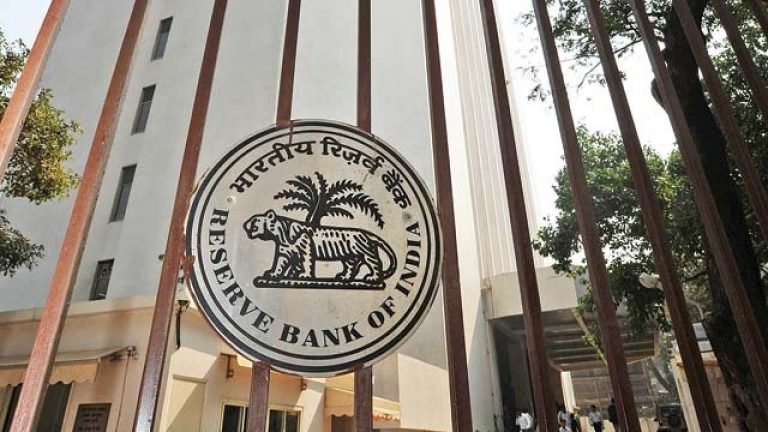Artificial Intelligence (AI) has already transformed industries across the globe, and finance stands as one of its biggest beneficiaries. From algorithmic trading to fraud detection and personalized banking, AI is enabling financial institutions to become faster, safer, and more efficient. Recognizing this seismic shift, the Reserve Bank of India (RBI) has stepped forward with a landmark initiative: FREEAI – Framework for Responsible and Efficient AI. This is not just another policy paper; it’s a blueprint for how AI will shape the future of Indian finance.
In this blog, we’ll break down what RBI’s AI governance framework means, why it’s crucial, and how it positions India on the global fintech map.
Why India Needs an AI Governance Framework in Finance
India is home to one of the world’s fastest-growing fintech ecosystems, with UPI alone handling billions of monthly transactions. As financial institutions integrate AI into risk management, lending, fraud prevention, and customer experience, the stakes are higher than ever.
Without proper checks, AI can introduce biases in lending, data privacy risks, and systemic vulnerabilities. Stablecoins, CBDCs (Central Bank Digital Currency), and embedded AI in banking apps further amplify risks around consumer trust and financial stability.
The FREEAI blueprint is RBI’s proactive answer—ensuring responsible, India-specific AI adoption that balances innovation with accountability.
What is FREEAI?
FREEAI (Framework for Responsible and Efficient AI) is RBI’s governance model designed to guide how banks, NBFCs, payment companies, and fintech startups use AI.
Its core objectives include:
🔸 Fairness & Transparency – AI models in lending, fraud checks, or credit scoring must be explainable and free from hidden biases.
🔸 Risk Management – AI adoption must go hand-in-hand with robust oversight to prevent systemic risks.
🔸 Consumer Protection – Safeguarding user data privacy, ensuring grievance redressal, and protecting against algorithmic discrimination.
🔸 Audit & Accountability – Institutions must maintain clear audit trails of AI decision-making.
🔸 India-Specific Customization – AI governance should reflect local data laws, demographics, and financial inclusion goals.
This framework isn’t just about compliance—it’s about building trust in AI-driven finance.
Key Pillars of RBI’s AI Governance
Let’s dive deeper into the pillars of FREEAI that will shape the AI-finance ecosystem in India:
1. Ethical AI Adoption
RBI stresses that AI models used in credit, lending, and investments must operate without discrimination. For example, loan eligibility decisions shouldn’t unfairly penalize applicants based on non-financial factors like gender, region, or language.
2. Data Protection & Privacy
With financial data being the most sensitive form of personal information, FREEAI aligns with India’s Digital Personal Data Protection Act (DPDP). It ensures fintech firms adopt stringent encryption, anonymization, and consent-based data usage.
3. Transparency & Explainability
Black-box AI models are not enough. RBI requires fintechs to adopt explainable AI (XAI) frameworks so customers and regulators can understand why a loan was rejected or a fraud flag was triggered.
4. AI Risk Monitoring
RBI proposes real-time AI risk dashboards, stress-testing, and periodic audits to prevent financial instability caused by flawed algorithms.
5. Human Oversight
AI will not be left unchecked. RBI mandates that human-in-the-loop governance must remain in critical financial decisions to ensure accountability.
Impact on Banks, NBFCs, and Fintech Startups
FREEAI will reshape how financial institutions deploy AI in India:
🔸 Banks & NBFCs – Must redesign AI-powered credit models to meet explainability and fairness standards.
🔸 Fintech Startups – Need to integrate AI risk compliance early into their systems—no more “move fast and break things.”
🔸 Consumers – Will benefit from greater transparency, trust, and protection in AI-driven financial services.
🔸 Global Alignment – Puts India on par with global efforts like the EU AI Act, but with customization for local realities.
Why This Matters for India’s Financial Future
The introduction of FREEAI signals that India is serious about balancing fintech innovation with stability. With the country’s fintech market projected to reach $1.3 trillion by 2025, responsible AI adoption is no longer optional—it’s mission-critical.
By creating a regulatory sandbox for AI governance, RBI is setting India apart as a global leader in AI-enabled finance. This move will also attract foreign investment, as global players see India as a safe and structured environment for AI in finance.
Conclusion
The RBI’s FREEAI governance blueprint is more than just a regulatory framework—it’s a vision for the future of finance in India. By prioritizing fairness, transparency, and accountability, the RBI is laying the foundation for a sustainable AI-powered financial ecosystem that protects consumers while encouraging innovation.
For India, this isn’t just about AI—it’s about building the world’s most inclusive, transparent, and responsible financial system.




